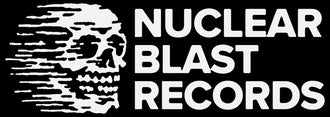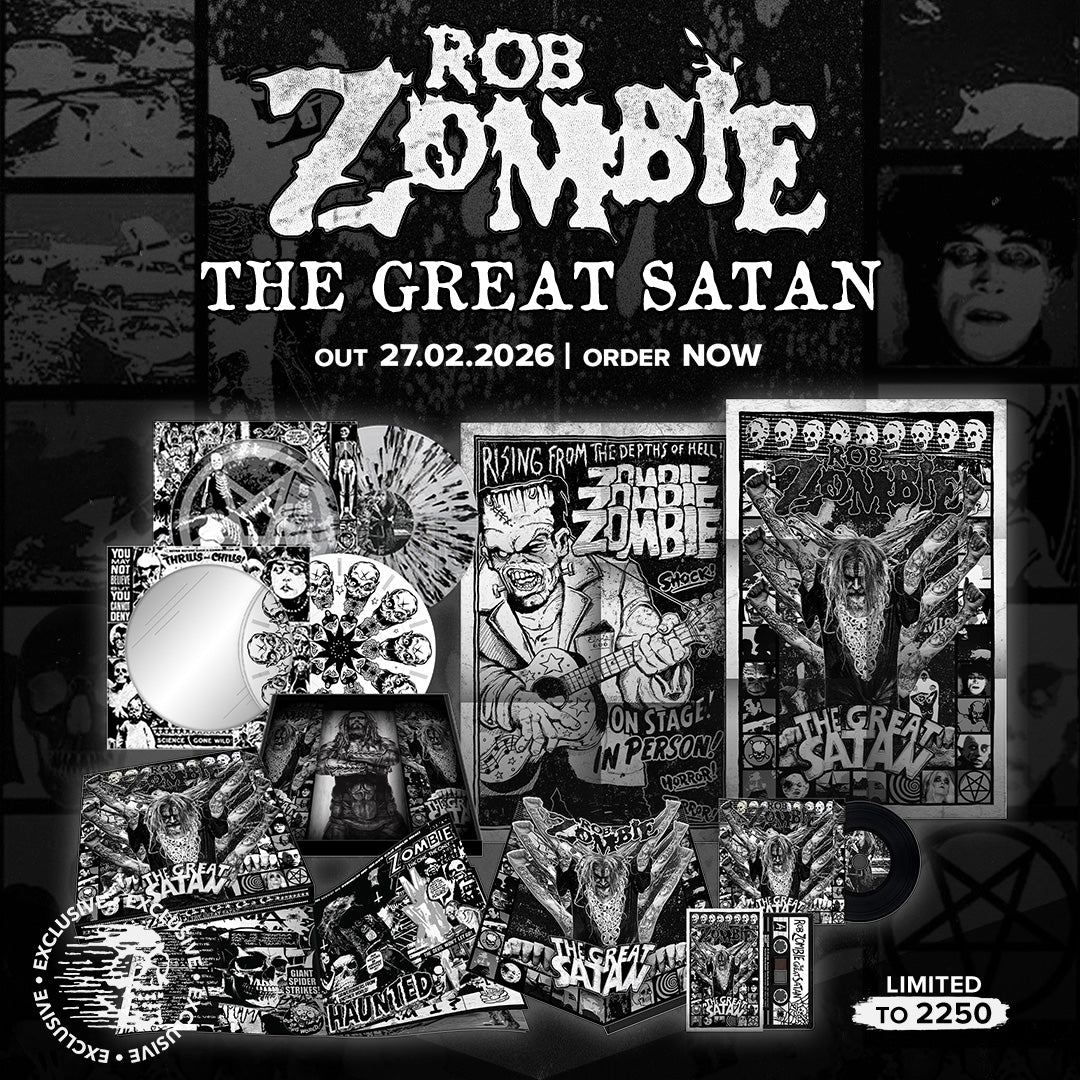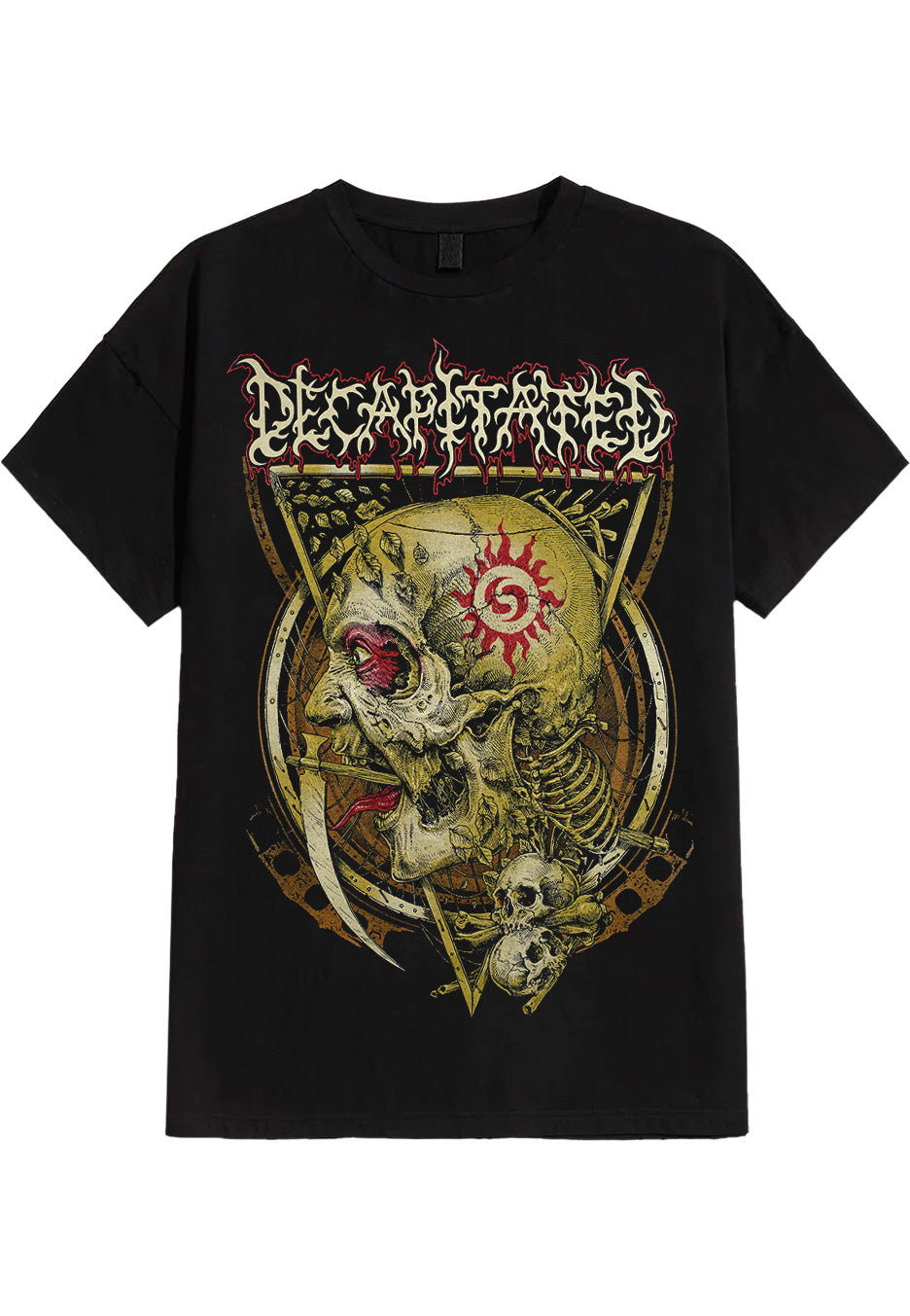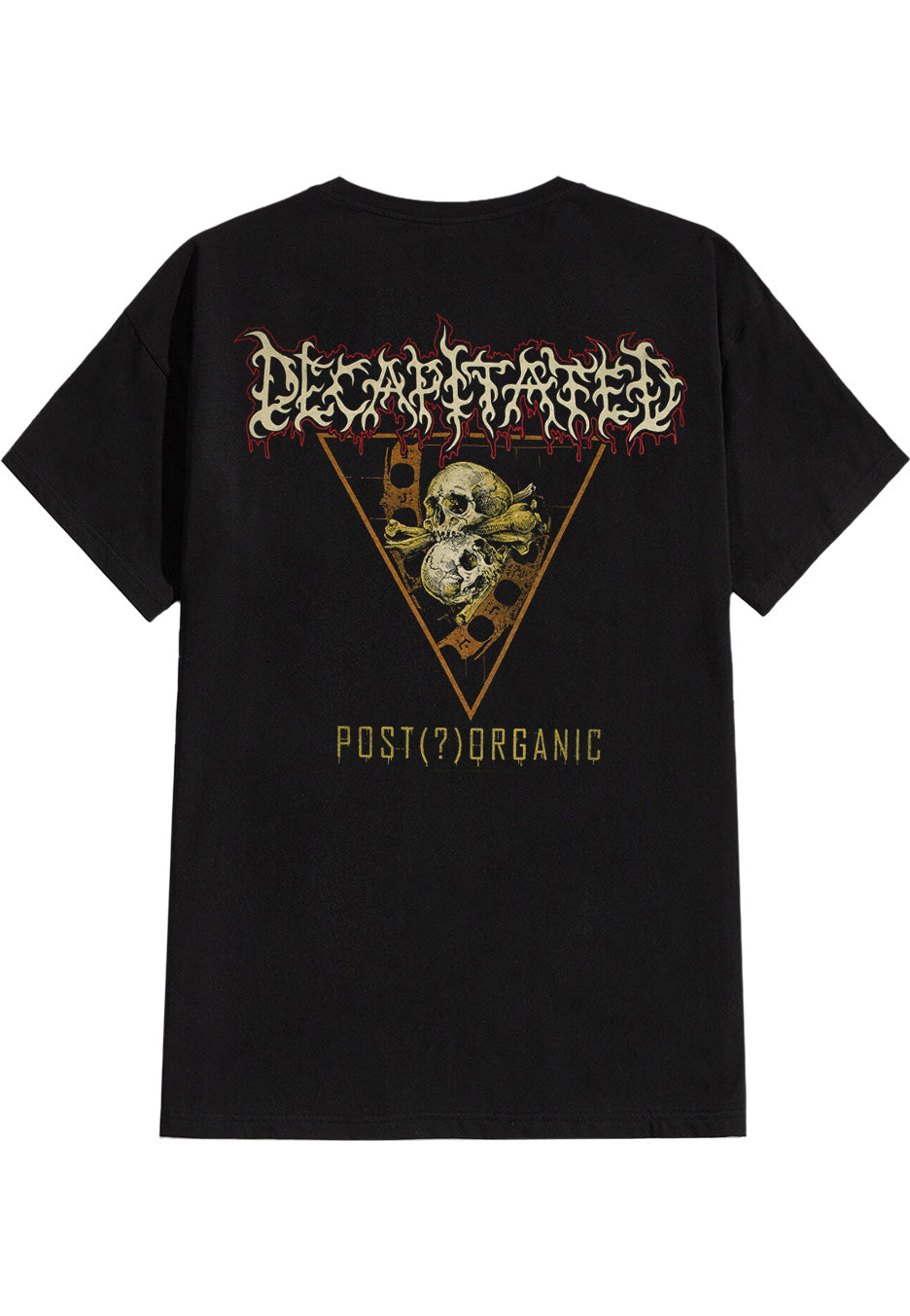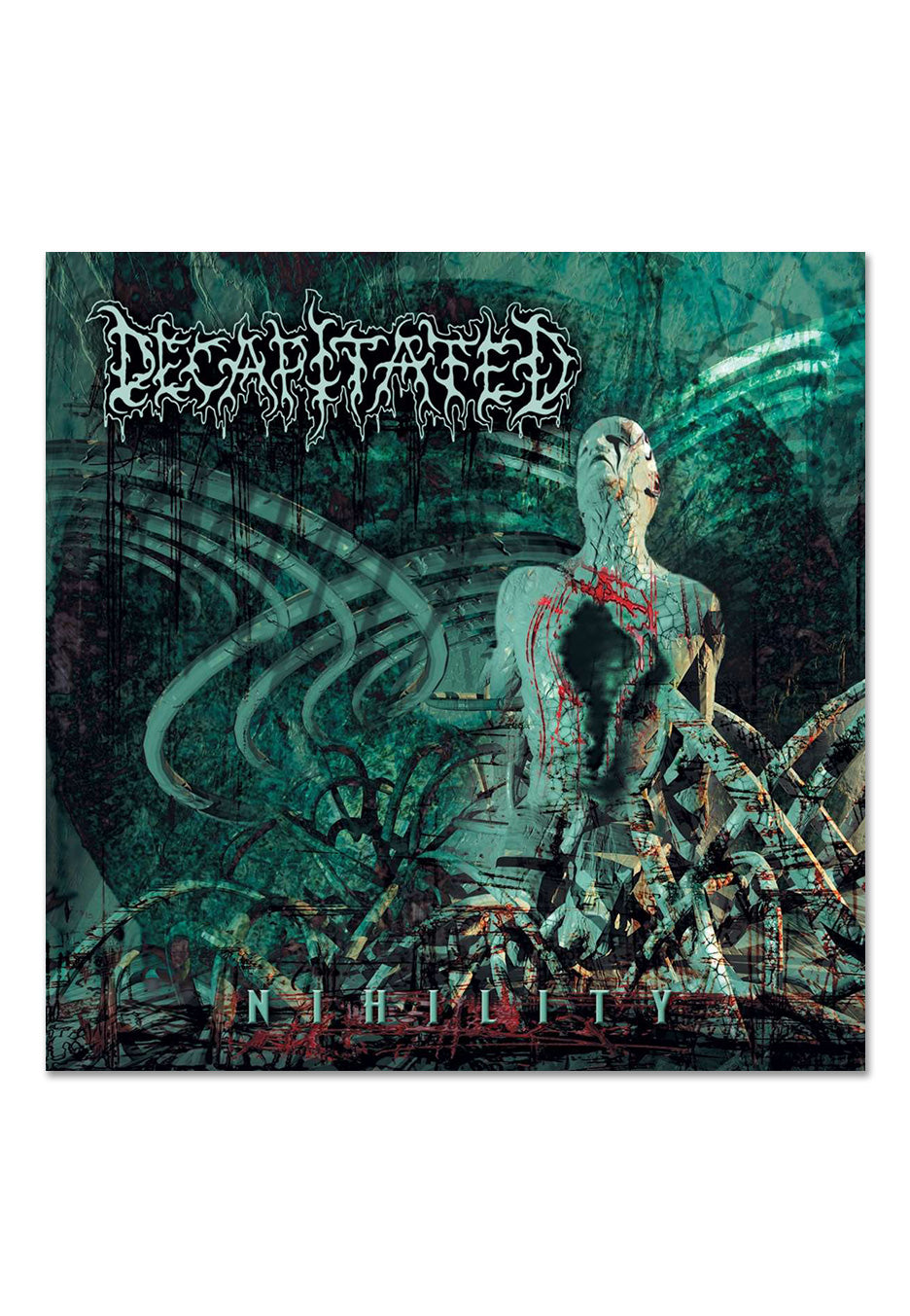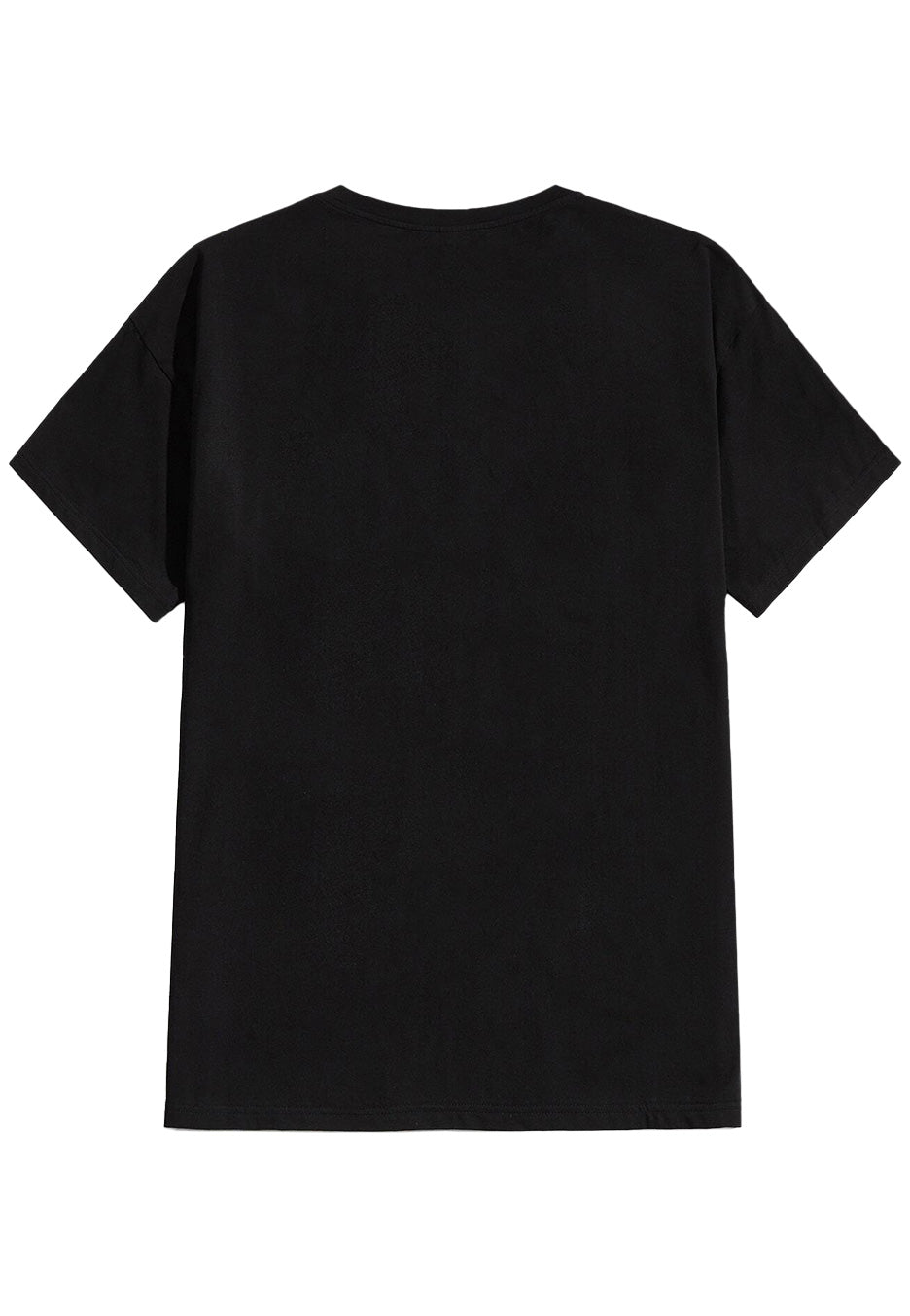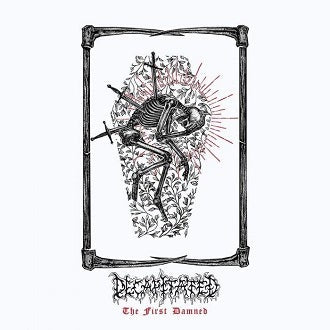
Decapitated
The First Damned
Release:
Tracklist:
The road to heavy metal glory is littered with the crumpled bodies of musicians that didn’t have the talent, the opportunity or the dumb luck to make the grade. But sometimes greatness is present from the very start, and it’s bands with that magical, ill-defined, special something that seem to follow a predestined path to triumph. That is certainly true of Poland’s Decapitated. As I write this at the end of 2020, Decapitated are widely and justly recognised as one of the most important and consistent death metal bands of the 21st century. With an idiosyncratic and always crushing sound that has been relentlessly copied but never equalled, the band led by guitarist Waclaw ‘Vogg’ Kieltyka are contemporary legends with a near-flawless creative catalogue. But even natural-born heroes have to start somewhere, and Decapitated’s story began in Krosno, Poland, a long, long time ago, with the simple passing of the metal torch from one family member to another…
Vogg: “My older cousin was a metal fan. He’s about eight years older than me and he was a real metalhead, going to all the festivals in Poland and seeing all those bands. He had all the posters on the wall and all the tapes, because it was tape-trading time, and I think it was even before CDs in Poland. The first CD I ever saw was Metallica’s Black Album, so before that it was just photocopied tapes. So my cousin basically infected me and my younger brother with metal.”
Despite a skewed media narrative that claims that the ‘90s were a bad time for metal, the decade was really an incredibly fertile and exciting time for young fans of heavy music. In particular, the death metal scene flourished in the early ‘90s, spreading across the globe and spawning hundreds of great bands. In Poland, a country with a proud history of hard rock and heavy metal, death metal reigned supreme and Vogg and his younger brother Witold ‘Vitek’ Kieltyka were swept away by the sound of blastbeats and blasphemy.
Vogg: “In those days in Poland, death metal was number one. Of course we had Vader and they were the biggest band. No one could compare to them. I guess Behemoth had just started, and the scene had started to grow, but Vader was huge - they were the kings of metal in Poland and they were among the kings of the global death metal scene too. Morbid Angel, Cannibal Corpse, Deicide, Vader and a few other bands - they were the kings in the beginning to mid- ‘90s. We just listened to a lot of that stuff. Plus, there were so many bands around in Poland, trying to play death metal, so death metal just became the main thing.”
Decapitated formed in Krosno in 1996, but Vogg and Vitek spent the years prior to that seismic moment immersing themselves in the metal world, devouring as much music as they could get their hands on and edging ever deeper into the vibes and culture of the extreme metal underground. The early ‘90s was the perfect time for the young Poles to make their entry into the metal fray for real, as the music they loved evolved and exploded all around them.
Vogg: “There was also this important band from Poland, KAT, a black/thrash metal band, which had a huge impact on me as a musician. So I had that sound in my blood, and we loved all the thrash metal bands, the Bay Area scene, and bands like Sepultura, Pantera and Machine Head too. The first time I heard Deicide I was confused, like ‘Oh shit!’ [Laughs] It was too intense for me back then. But eventually I loved that sound, and Morbid Angel, Deicide and Cannibal Corpse were the main things I listened to all the time. Trey Azagthoth was the main reason I started playing heavy metal. The moment I saw the videos for Rapture and God Of Emptiness, I knew and I signed the deal! [Laughs]”
Bewitched by death metal and increasingly intrigued by the idea of making some brutal music of his own, Vogg was plainly destined to be a professional musician. Both he and his younger brother were already attending music school, honing their abilities as classical musicians and gaining a rich knowledge of music’s nuts and bolts in the process. Also attending the school were Wojciech ‘Sauron” Wasowicz and Marcin ‘Martin’ Rygiel: the two remaining pieces of the original Decapitated jigsaw. All that was needed was a masterplan…
Vogg: “So we all lived at the same school in Krosno, and we were all big heavy metal fans. Suddenly there was thrash and death metal around, it was the ‘90s and there were tons of great album releases all the time. So we were in the middle of the scene and we went to the music store every day after school to check out new tapes, being real metalheads with a passion for metal music. I’d started to play guitar a little bit, and Sauron came up with the idea to start a band. He brought the name Decapitated, and I said, ‘Okay, let’s do that…’ Then I started writing my own riffs, although you might say they were really Trey Azagthoth riffs or Eric Peterson riffs! [Laughs] But I was really influenced by the whole scene and started to write my own songs. We found our first place to rehearse and we rehearsed every Tuesday at 6 o’clock for two hours, and we created the first four songs.”
It’s always worth remembering that Decapitated were absurdly young when they pieced together their first four death metal anthems. Most amazingly, Vitek was only 12 years old when he delivered his first performances in the studio, but all four members of the band were clearly ready to step up to their first major challenge, even if Vogg was a bit slow to realise his new band’s potential.
Vogg: “The bass player, Martin, he became a sort of manager for the band, and he suggested that we go to the studio and record the songs. I was like, ‘What?’ I’d never thought about doing that. It was cool to be in a band and it was cool to have a jam, but that was something I hadn’t thought about at all. But yeah, why not? So we collected 400 zlotys, which is about 100 pounds, and that was the budget for the first demo. It was a pretty good deal!”
The first Decapitated demo, Cemeteral Gardens, was recorded at Manek Studio in Sanok, Poland, in June, 1997. From its ominous, eerie intro to the final crushing fury of its epic title track, it was an extraordinarily mature and inventive effort from a quartet of fresh-faced teenagers, powered by passion and excitement and gaining in confidence with every passing riff. 23 years on, songs like Destiny and Way To Salvation (the latter of which reappeared on Decapitated’s Winds Of Creation album in 2000) were undeniably rough around the edges, but the veracity, potency and potential of these wide-eyed kids from Krosno was unquestionable.
Vogg: “Listen to the demos now and there are mistakes, all the time! But no one changed anything in those days and bands sounded like they were really playing. There was no bullshit. You didn’t edit everything like they do today, now that everything has to be perfect. We didn’t think, ‘Let’s wait and first learn how to play!’ We just did it. We knew we could do it somehow. It was like, ‘Let’s make a record and then we’ll know how to make a record!’ [Laughs] To be honest, I never realised how good Vitek was until he died. I was always treating him a little bit too hard because he was my younger brother. I was trying to deliver at the best level all the time, and I always punished him a little bit, forced him to play better and practice more and do everything better. But when we made the demos, he was just crushing.”
An exhilarating first demo by anyone’s standards, Cemeteral Gardens showcased the unique magic that always seems to have informed Decapitated’s music. All four members of the band contributed to their swift evolution, but the Decapitated sound was always constructed around the formidable core of brothers Vogg and Vitek. With hindsight, it was the chemistry the pair enjoyed, and the euphoria they clearly both felt when playing together, that pushed the nascent four-piece to a level that still seems insane, taking into consideration how young they were at the time.
Vogg: “I sometimes try to imagine that if I could jam with him right now, it would be something really, really, great. I always compare us, as brothers, to Joe and Mario [Duplantier] from Gojira or Vinnie and Dime from Pantera: it’s that brother sound. We created the songs and we didn’t have to talk about it. We just had this chemistry. Everything was clear and the sound was great. That kind of relationship makes music sound great without any technology. You don’t have to think about where to put the microphone or which cymbals you’re going to use, it’s all about the feel.”
Cemeteral Gardens erupted onto the streets of Poland in the autumn of ’97, quickly establishing Decapitated as one of the bands to watch in an increasingly overcrowded scene. For Vogg, the experience of releasing his own songs into the world for the first time was unbelievably thrilling, particularly when the response to the demo turned out to be very positive indeed.
Vogg: “We did the first demo tape and then we saw the first reviews in the local magazines and underground press, and I remember the first time I saw a review in the newspaper and it was a great moment. I came back from school and I read it over and over again, because it was really positive about how we played and about the songs. Then we started to work on more songs.”
Buoyed by the support of their native scene, Decapitated wasted no time in conjuring some fresh material for second demo. Once again recording at Manek Studio, The Eye Of Horus showcased a band with the wind in their sails, as Vogg refined his songwriting skills and his band mates stepped up with much greater precision, power and authority. The sound of the demo was also noticeably punchier than that of its predecessor.
Vogg: “Yeah, in terms of composition it was definitely a step up, and in the production too. Because of the sound engineer, he was already famous in the local scene, because every band’s demo or album that he recorded sounded way better than anything else around, or anything that came before. So he delivered a better sound for us, for sure, and I think we started to play better as well. We also had better songs, I think, and some of them ended up on the first album.”
When The Eye Of Horus was unleashed in the autumn of 1998, Decapitated’s collective ambitions remained limited to playing a few shows and, perhaps, writing a few more songs. Today, Vogg admits that he never suspected that his band’s demos would lead to bigger and better things. In truth, Decapitated were simply too good, too exciting and too original to be ignored. Despite their humility and understandably low expectations, the sheer quality of The Eye Of Horus would soon lead to an unexpected leap up the heavy metal ladder.
Vogg: “My friend Jaroslaw Szubrycht was trying to manage us a little bit back then. He was the singer in Lux Occulta, another local band that I joined later. I went to the studio with Lux Occulta, to a studio in the north of Poland, and I recorded this album with them in the studio where Vader used to record. They made Back To The Blind and some other albums up there. So Jaroslaw took our second demo and gave it to Vader’s manager. He listened to it, and after that he offered us a management agreement. So I come back home and they said, ‘Okay man, you need to write two more songs and you’re coming back in the spring to make your first album…’ Then they sent The Eye Of Horus to Earache and they said they wanted to sign a deal and release the first album. I was in shock! I didn’t know what to do with that information. The whole band was still at school and I was terrified, because the manager of the biggest band in Poland was offering me a deal… and I was a teenager! [Laughs]”
Listening back to The Eye Of Horus and Cemeteral Gardens over two decades later, it’s fairly obvious why they stood apart from so many of their contemporaries. With a sound that owed a significant debt to traditional death metal while gleefully fucking with that formula at the same time, Decapitated were preternatural standard bearers for extreme metal’s liberated ethos. Not, of course, that they were aware of it at the time.
Vogg: “It all happened pretty fast, I must admit. We basically knew each other because Krosno was a small town and we went to the same school. We started in October ’96. We just started practicing, I delivered the songs, the first demo was in ’97, the second one was in ’98, and then we started recording the first album the next year. Then we signed with Earache. I was afraid because I didn’t know how any of it worked, but I knew I had to sign! [Laughs] I didn’t know what my parents would say, or how my school would react. But I had a feeling that this moment could change my life forever, for sure. Suddenly, I jumped into the real music world. From the release of the first demo to signing a deal with a professional record label and releasing music worldwide, it was only about three years.”
Officially released for the first time in two decades, Decapitated’s early demos have not been remixed, remastered or messed with in any way. Instead, this is a blistering, bona fide and warts ‘n’ all snapshot of four young men with fire in their bellies and a bright future ahead of them. Many years later, Vogg is still out there flying the flag, delivering ground-breaking brutality and honouring his fallen brother’s memory with grace and power. But this is where the legend began: raw, vital and crushing death metal, Decapitated-style.
Vogg: “It was an amazing time and I have a lot of great memories. It was funny, too. I remember people from our scene in Poland, older guys, they were kinda jealous of us and everyone started to hate us when we got signed, because we were too young and we didn’t pay our dues! [Laughs] So there were a lot of rumours and jokes in the local newspaper, with bands like that saying, ‘They’ve just started and those fuckers with nice hair are already on the cover of Thrash ‘Em All magazine… and it’s not cool!’ [Laughs] I remember rumours that we had to know someone, but I promise you we didn’t know anything! Sometimes shit just happens!”
Decapitated
Musik & Merch
Sichere dir dein Exemplar von The First Damned und vielen weiteren Releases.
